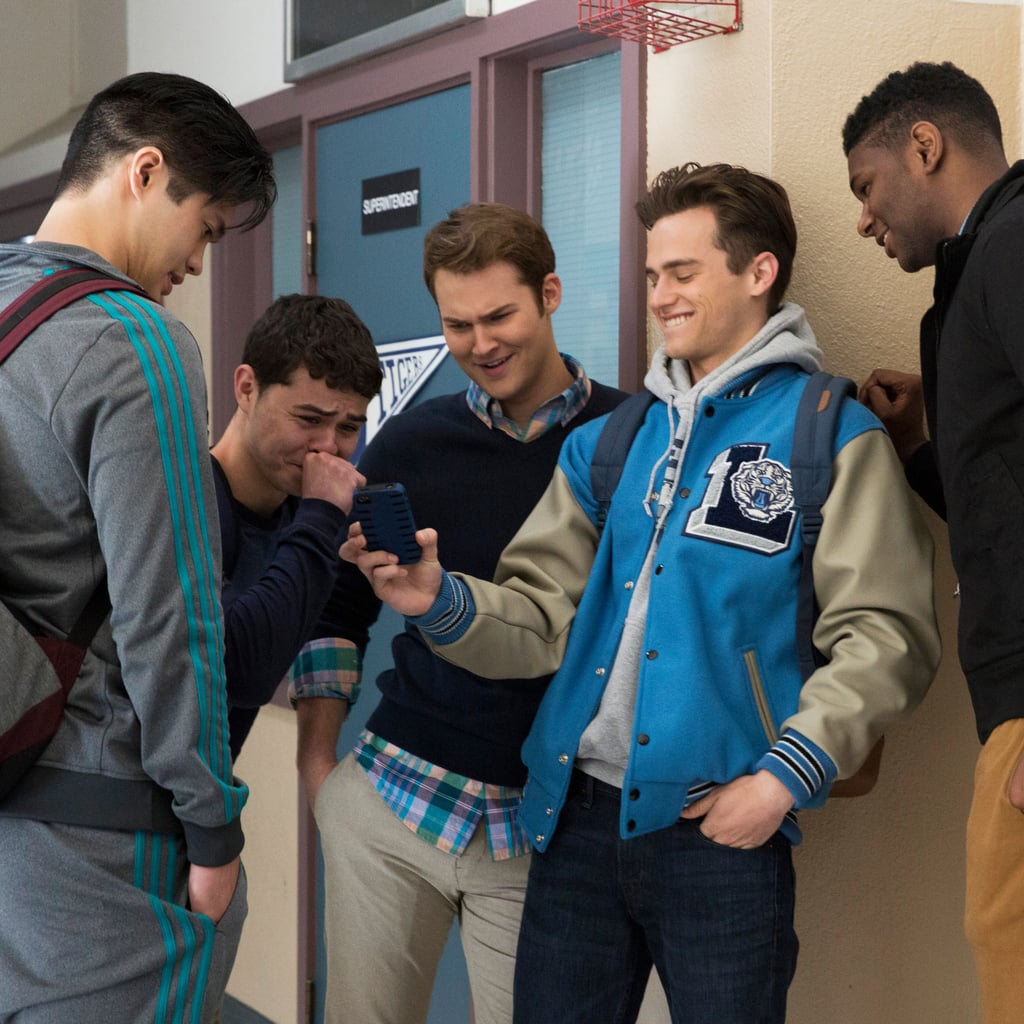| IMAGE: IMDB |
An incredibly graphic show, 13 Reasons leaves little to the imagination. Hannah's suicide is shown fully on screen as are the various depictions of sexual assault including the now controversial scene featuring character Tyler in the season two finale. Designed to instigate discussion about some of the darker sides of society, 13 Reasons Why remains polarizing for how it depicts certain topics; however, one topic that is rarely discussed or mentioned is the affect that technology has on areas such as bullying and harassment which makes it even more topic-worthy.
 |
| IMAGE: Popsugar (13 Reasons Why) |
In my opinion, 13 Reasons Why perfectly demonstrates why it is not as simple as blaming technology for a bullying and harassment prevalent culture: technology does not "feature" in much of the show at all. Are there instances of cyber-bullying? Yes, but they are certainly not the center of the issue. In the first season, a picture of Hannah and another girl is circulated throughout school leading to significant harassment which is 100% cyber-bullying. However, the original photo was taken on "old-school" film, and as the second season showed, the pictures could have just as easily been developed, printed, and circulated without a single cell phone coming in to play. It was not social media (as depicted in other movies/shows) that led to the circulation of potentially embarrassing media; it was just traditional, personal interaction.
 |
| IMAGE: NME (13 Reasons Why) |
Season two drives this point home even harder as nearly all of the bullying and harassment that takes place is either verbal or physical; there is very little digital assault. For instance, look at all the various ways that Montgomery tried to intimidate and bully his classmates:
1) he gave Alex a gun and bullet;
2) he physically attacked Clay;
3) he vandalized Tony's car;
4) he physically and sexually assaulted Tyler.
At no point, in any of these scenarios, did he use technology or social media to harass his classmates. Even in the scenario of Chloe trying to intimidate Jessica, she printed pictures and posted them in the classroom when she could have just as easily anonymously posted them online and allowed them to circulate.
For all the points that 13 Reasons Why makes in terms of how high school culture can be as well as where we stand as a society in terms of gender equality and victim-blaming, one of the largest points it subtlety makes is that technology is neither responsible nor required for harassment and assault. The concept and action of bullying and assaulting existed long before the technological tools we have today, and it will continue to exist as those tools change over time. While it certainly makes it easier to stay anonymous, it is not responsible for the physical manifestations of bullying; those acts are performed by individuals without the safety of screen. it is because of this (and how it is shown in 13 Reason Why) that we cannot simply blame technology for where we are as a culture; that responsibly should stay firmly on our own shoulders.

I am very greatfull to you as you shared this.I am recently developing associate app spotify hulu
ReplyDeletethat is you may have an interest to seem on that :